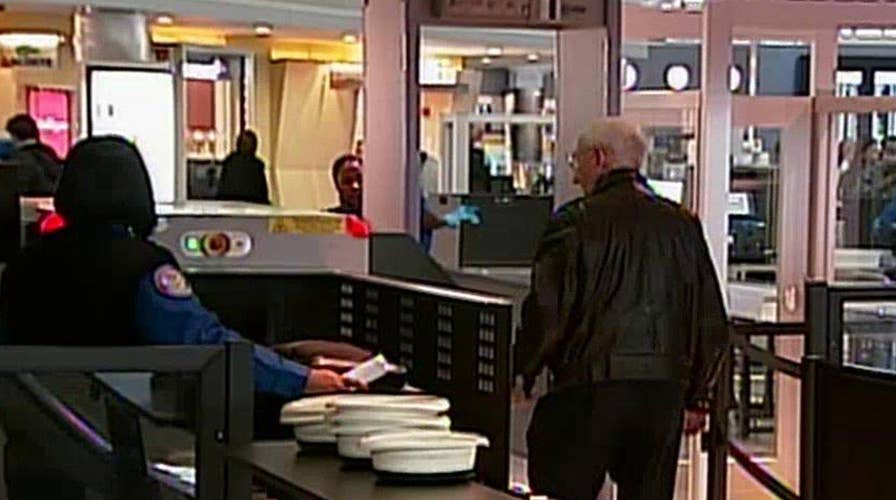The head of the Transportation Security Administration thinks a disproportionate focus on quickly moving passengers through airport checkpoints led to systemic problems with the agency’s security screening process.
Last year, a leaked classified DHS Inspector General report found that TSA screeners failed to detect weapons being smuggled through various airport checkpoints by auditors 67 out of 70 times. And in his remarks before an aviation club luncheon in Washington, D.C. on Wednesday, Administrator Peter Neffenger said those startling results called into question the ability of the TSA to accomplish its mission.
Since inheriting the top job in the plagued agency just under eight months ago, Neffenger said TSA is now in a significantly better place thanks to a series of reforms introduced by his leadership team and Homeland Security Secretary Jeh Johnson.
“I am confident that I have the attention of the workforce, that they take it seriously, and that they really want to do the job to the best that they can because they see events around the world they don't want that to happen here. That encourages me.” Neffenger told Fox News in an interview following his speech. “I'm certain that they'll do better, I'm certain that the IG is going to go out and test us again. I hope he does because those results are very valuable to us.”
The retired Coast Guard Vice Admiral stopped short of saying that the problems at TSA are fixed, instead he admitted the agency can always get better.
Among the reforms being worked into the mix, TSA brass is retraining its entire workforce, including management.
In addition to those efforts, the agency has opened a brand new TSA academy. Newly hired agents will now be required to undergo training at the Federal Law Enforcement Training Centers in Glynco, Ga.
There, agents will learn the ins and outs of screening passengers and observing suspicious behavior in varying environments.
The training will also include simulations of disaster scenarios like active shooter incidents.
In discussing the biggest security challenges within airport environments, Administrator Neffenger told Fox News that non-sterile zones – or areas where travelers have not yet been screened – are of primary concern. He alluded to last year’s terror attack in San Bernardino, Calif., and the threat of active shooter-type situations when describing the dynamic terrorism picture painted by homegrown extremists and ISIS-sympathizers.
“We are reengaging with local law enforcement to ensure that they're on the lookout for anybody who might do something outside the sterile area of the airport,” Neffenger said. “We're comfortable that we have a lot of procedures in place to help us identify individuals coming into the system, and, of course, identify prohibited items that you don't want to get through. But the real question is outside the sterile area, what do you know?”
That worst case scenario played out at Los Angeles International Airport on November 1, 2013 when a disturbed gunman shot and killed TSA Officer Gerardo Hernandez in the line of duty near a security checkpoint inside one of the airport’s terminals.
In light of a recent reporting by Reuters that claimed an airplane mechanic planted the bomb responsible for the downing of the Russian MetroJet airliner over Egypt this past October, Neffenger also acknowledged the potential insider threat at U.S. airports.
The TSA chief said his agency is taking active steps to enhance background screening of airport workers and vendors just as much as it is stepping up efforts to inspect the traveling public.
“Right now we have 900,000 or so people that are badged in some level of access to airports across the nation,” Neffenger told Fox News. “They are recurrently vetted – I mean, on a daily basis – against terrorist databases for any information that may indicate that they are people that we need to be concerned about.”
Neffenger said that his agency is also working more closely with the FBI to put airport workers and vendors through recurring criminal background checks. He added that those who hold credentials to enter sterile areas of airline terminals will also be subject to stepped up physical screening as well.
“If you're walking around in an airport environment and you carry an access badge, there's an expectation that, at some point during any given work day, you're going to get stopped and checked – somebody's going to check your badge, somebody's going to check the things that you're carrying, they may even do a pat down,” Neffenger said. “They're going to verify that you are the person that you say you are and that you're not doing anything you shouldn't be doing.”













































